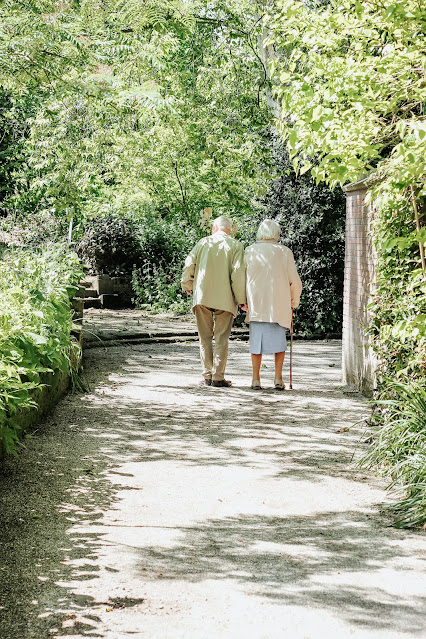As we age, our housing needs often change, and ensuring that seniors have a safe and secure living environment becomes a top priority. For many older adults, the idea of aging in place, in the comfort of their own home, is incredibly appealing. However, it's essential to create a living environment that promotes safety and security for seniors. In this blog post, we'll explore some of the key factors that contribute to a seniors' sanctuary – a home that provides the peace of mind and comfort that older adults deserve.
1. Home Modifications for Safety:
Home modifications play a crucial role in creating a safe living environment for seniors. These modifications can include:
● Grab Bars: Installing grab bars in the bathroom and other key locations can provide essential support for seniors, helping them maintain balance and prevent falls.
● Ramps and Stair Lifts: For homes with stairs, ramps and stair lifts can make multi-story homes more accessible. These devices help seniors navigate their homes safely and with ease.
● Wider Doorways: Widening doorways can accommodate mobility aids such as wheelchairs or walkers, making it easier for seniors to move around their homes.
● Non-Slip Flooring: Replacing slippery floors with non-slip surfaces, such as non-slip tiles or carpeting, reduces the risk of slips and falls.
● Improved Lighting: Adequate lighting is essential to prevent accidents. Seniors should have well-lit spaces to navigate their homes comfortably.
2. Smart Home Technology:
The integration of smart home technology can significantly enhance the safety and security of seniors living at home. Some key elements to consider include:
● Fall Detection Systems: These systems can alert caregivers or emergency services if a senior falls, ensuring quick assistance.
● Home Security Systems: Modern security systems offer remote monitoring, allowing seniors to have peace of mind and stay connected with family and caregivers.
● Voice-Activated Assistants: Devices like Amazon's Alexa or Google Assistant can provide seniors with assistance, reminders, and entertainment.
● Medication Reminders: Smart devices can be programmed to provide medication reminders to ensure seniors take their medications as prescribed.
● Emergency Call Systems: Having a button or pendant that connects to an emergency response service can provide seniors with immediate assistance in case of an emergency.
3. Access to Healthcare Services:
Easy and prompt access to healthcare services is a paramount need for senior citizens. Assisted living facilities, like those in Layton, offer a great solution by providing on-site medical care and wellness programs. Consider the following:
● Telemedicine: Telemedicine allows seniors to consult with healthcare providers remotely, reducing the need for frequent in-person visits.
● Home Healthcare Services: Home healthcare providers can assist with various medical and non-medical needs, such as medication management and personal care.
● Regular Check-Ups: Ensure that seniors have access to regular check-ups to monitor their health and address any medical concerns promptly.
4. Social Engagement:
Isolation can be a significant concern for seniors, and loneliness can affect both mental and physical health. Creating a seniors' sanctuary involves fostering social engagement:
● Community Activities: Encourage participation in local senior centers or community activities that provide opportunities for socialization.
● Family and Friend Support: Maintain close connections with family and friends to provide emotional and social support.
● Virtual Socialization: Seniors can connect with loved ones through video calls, which can be especially helpful for those who cannot have frequent in-person visits.
5. Emergency Preparedness:
Being prepared for emergencies is essential to senior safety:
● Emergency Kits: Ensure that seniors have emergency kits with essential supplies, including medications, non-perishable food, water, flashlights, and other necessities.
● Emergency Contact Information: Seniors should have a list of emergency contacts, including family members, neighbors, and healthcare providers.
● Evacuation Plans: Create evacuation plans for different types of emergencies, such as fires, floods, or severe weather.
6. Regular Exercise and Physical Activity:
Staying physically active is crucial for seniors. Regular exercise can help maintain strength, balance, and overall well-being. Encourage activities that are appropriate for a senior's physical condition, such as walking, gentle yoga, or chair exercises.
7. Nutritious Diet:
A balanced diet is essential for senior health. Ensure that seniors have access to nutritious meals and stay hydrated. Additionally, consider any dietary restrictions or health conditions that may require special dietary accommodations.
8. Financial Security:
Financial stability is essential for a seniors' sanctuary:
● Budgeting: Seniors should have a budget in place to manage their finances effectively and prevent financial stress.
● Scams Awareness: Educate seniors about common scams and frauds to protect them from financial exploitation.
● Legal and Financial Planning: Ensure that seniors have proper estate planning documents in place, including wills, powers of attorney, and healthcare directives.
Creating a seniors' sanctuary is a holistic approach that focuses on safety, security, health, and well-being. By implementing home modifications, integrating smart technology, and providing access to healthcare and social services, you can help seniors age in place with dignity and comfort. Remember that every senior has unique needs, so customization is key to creating a safe and secure living environment tailored to their specific requirements.

